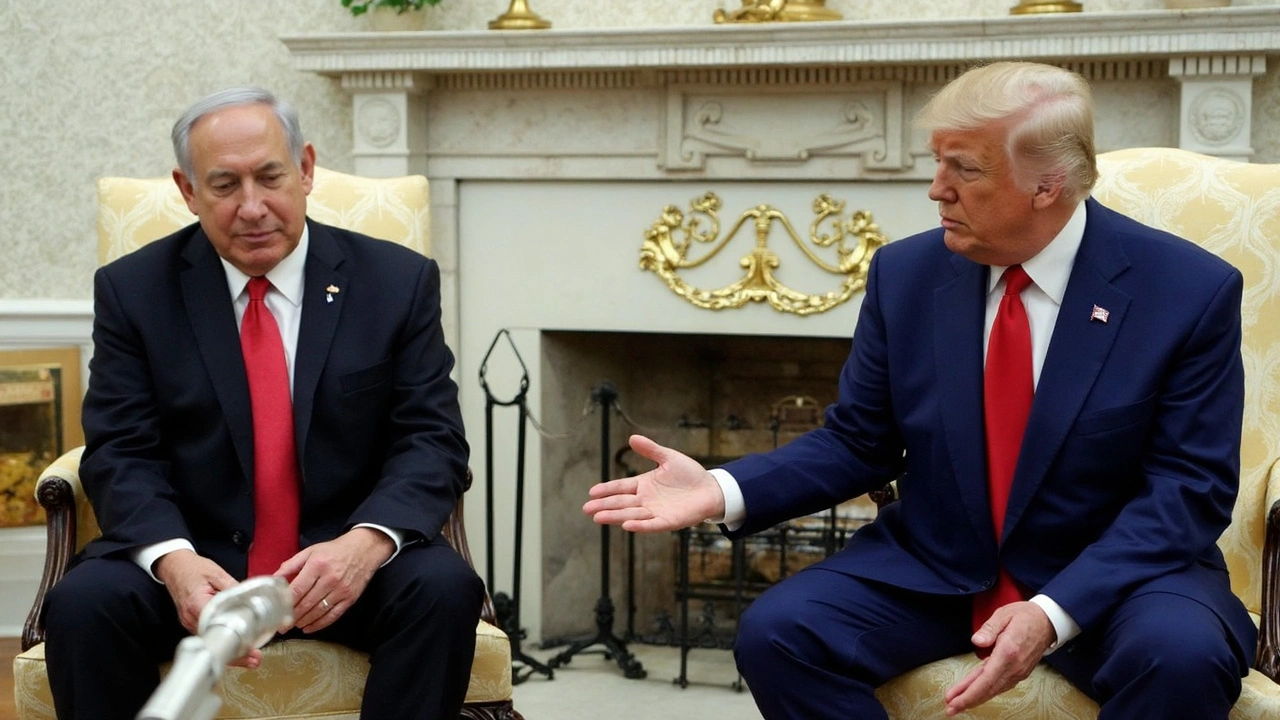Israel’s Calculated Gamble: Betting on Diplomacy or War
Things are heating up fast between Israel, Iran, and the United States, with President Trump throwing his weight behind a renewed push for a nuclear deal with Tehran. But he’s not turning a blind eye to Israel’s mounting anxiety—far from it. Trump flat-out admitted that a military strike by Israel on Iran’s nuclear sites isn’t off the table. In fact, he said an attack 'could very well happen,' which is about as blunt as it gets from the Oval Office.
What’s wild is that just a few months ago, Trump was warning Israeli Prime Minister Benjamin Netanyahu to hold back. Back in May, Trump seemed convinced a solution was within reach. He urged Netanyahu not to go off-script with strikes that could blow up fragile negotiations. Since then, though, things have shifted. The White House, while pushing for talks, has started quietly trimming down staff at U.S. missions across the Middle East—hardly a vote of confidence in the region’s stability.
- Trump’s message now is a mix of optimism and realism: Talks are 'very good,' he says, but no promises on a breakthrough. Tehran has to give ground—and not just on paper.
- He’s made it crystal clear: Iran can’t get its hands on nuclear weapons. But he’s also dangling economic goodies if a deal can be hammered out.
- Netanyahu, under growing pressure at home, is playing the long game but knows any Israeli strike risks unleashing chaos across the region.
Sources close to the Israeli government paint a picture of deep internal debate. Netanyahu is caught between two tough choices: wait and gamble on U.S. diplomacy, or launch a risky attack that might set back Iran’s nuclear plans but could light up a new war. No matter which path he chooses, the ripple effects would be felt far beyond Israel or Iran.

What’s at Stake for the Region and Beyond?
The stakes here go way beyond one border or another. For Israel, a negotiated deal—while not ideal—seems like the least bad option. They’re skeptical of Iran’s promises, sure, but an all-out war could be even worse. The U.S. is trying to walk a tightrope: keep Israel from acting unilaterally, but also wring enough concessions from Iran to make sure the nuclear threat is contained for real this time.
Regional jitters aren’t just political. With the U.S. pulling non-essential staff, everyone’s bracing for the possibility that talks could fail, leading to new conflict. Trump’s recent tough-but-hopeful call with Netanyahu wasn’t just about the nuclear deal—it was about keeping a lid on something that could spiral into 'destruction and death.' The message behind the scenes is unmistakable: nobody here wants another Middle East war if it can be helped, but nobody’s ruling anything out, either.
It comes down to Iran’s next move. Will Tehran take the deal on the table, or dig in and dare Israel to act? Every decision from now shapes the security of the region—and maybe the world—for years to come.

10 Responses
Wow, this whole situation is like a roller‑coaster of tension and hope!!! 🎢💥 Let’s keep our eyes peeled and stay hopeful for a peaceful outcome!!! 🌈✨
Sure, because peace negotiations always go smoothly after a few sharp tweets from the White House-no chance of misunderstandings, right? 🙄
The Middle East drama has reached a fever pitch that would make a Shakespearean tragedy blush.
Netanyahu is caught between a rock and a nuclear‑filled hard place, and the world watches like a bored audience at a circus.
Trump's flip‑flopping is not just a political wobble; it's a seismic tremor that shakes every diplomatic column.
The idea that a “deal” could magically appear while missiles loom is pure fantasy.
Iran's stubbornness is portrayed as defiance, but it's also a strategic game of survival.
Meanwhile, the U.S. staff reductions in the region send a clear message: we’re not fully invested.
Every time a politician says “very good talks,” the reality on the ground is screaming louder.
Israel’s military options are as tempting as a fast‑food binge during a diet, yet far more destructive.
A strike could ignite a firestorm that engulfs neighboring states and drags them into chaos.
The regional allies are jittery, blinking like lights on a faulty board.
Any misstep will ripple through oil markets, refugee flows, and global security frameworks.
The world cannot afford another cold‑war flashpoint, yet the pressure cooker is heating.
Diplomatic patience is a virtue, but not an excuse for paralysis.
Leaders must weigh the cost of war against the slim chance of a satisfactory treaty.
In short, the stakes are astronomical, and the margin for error is zero.
Honestly, it feels like we’re watching a high‑stakes poker game where everyone’s bluffing and nobody’s willing to fold.
Let’s keep the conversation grounded-no need for extreme hype. A measured approach helps everyone see the real options without the drama.
From a strategic‑communication standpoint, fostering dialogue is the optimal pathway; encouraging multilateral engagement can mitigate escalation risks and promote sustainable security frameworks.
This is a textbook case of diplomatic brinkmanship.
Wake up, people! The whole “peace process” is a smokescreen orchestrated by deep‑state actors to control the region’s resources!!!
When we dissect the motives behind such narratives, we uncover layers of fear, power, and the human yearning for stability amidst chaos.
In conclusion, while speculative rhetoric may proliferate, rigorous analysis coupled with diplomatic prudence remains essential to navigating these complex geopolitical challenges.